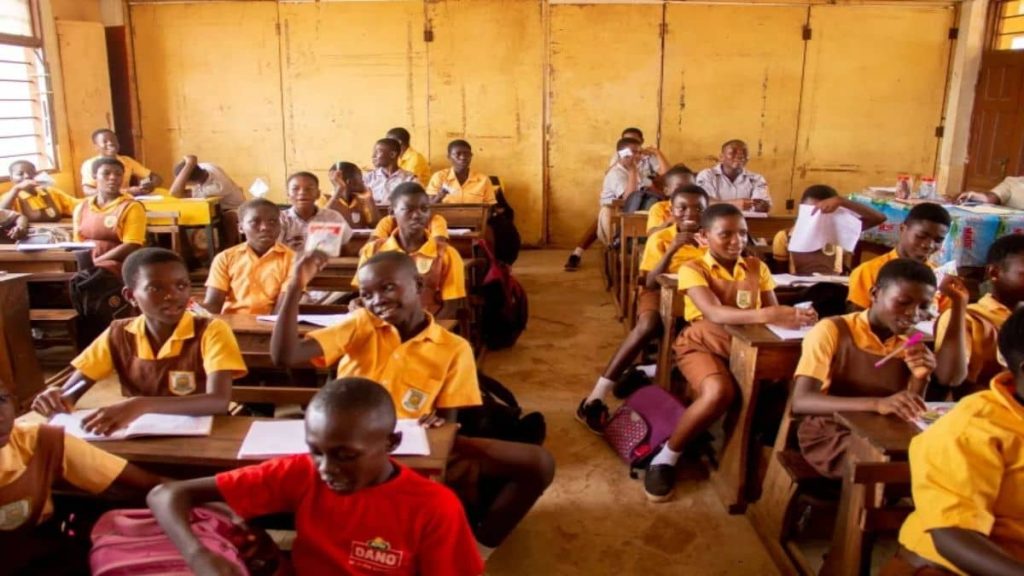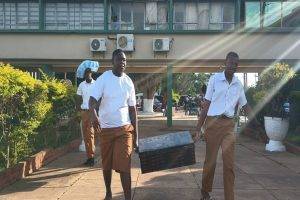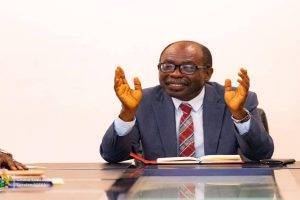Local language for teaching in schools is not feasible – Ex-GES DG

Former Director-General of the Ghana Education Service (GES), Professor Kwasi Opoku-Amankwah, says the directive for teachers to use local language to teach in Kindergarten and lower primary is not practical.
The former GES Director-General’s comment comes after the Minister for Education, Haruna Iddrisu, directed that local language be compulsory for teaching or instruction in all pre-tertiary schools across the country.
Speaking at the launch of the Free Tertiary Education for Persons with Disabilities in Accra on Friday, October 24, 2025, Mr Iddrisu said the new directive takes immediate effect under the supervision of the Ghana Education Service (GES).
The Minister in Charge of Education said the decision to use local languages for teaching is aimed at removing the language barrier in education and improving learning outcomes at the basic level, and helping children understand lessons better in the languages they speak and know.
He explained that a child learns best in a familiar language and that it is unfair for Ghanaian children to begin their education entirely in English when they come from homes where local languages are spoken.
“The story is told of a young girl whose teacher was teaching in English at an early stage, and the child struggled to understand. That child was not born into an English family but a proud Ghanaian family. Every Ghanaian child deserves to learn in a language they understand,” the Education Minister said.
But, in an interview monitored by Pretertiary.com, Professor Kwasi Opoku Amankwah described the directive from the Ministry of Education as a step in the right direction but fraught with practical challenges.
Speaking on Otec FM’s Nyansapo morning show, the former GES Director questioned which of the 83 Ghanaian languages would be used, noting that only nine are currently approved for use in basic education.
“A child born to Akan parents in the Volta Region may grow up speaking Ewe, not Twi. So, which language would be considered the mother tongue in that case?” the former GES professor asked.
Professor Opoku Amankwa emphasised that, beyond the language selection issue, the country lacks adequate teaching and learning materials in indigenous languages.
The immediate past Director-General of the Ghana Education Service argued that without documented resources and trained teachers proficient in these languages, the policy would struggle to succeed.
He urged the Ministry in Charge of Education (MoE) to conduct broader consultations and consider the realities on the ground before rolling out the use of local or Ghanaian language for teaching policy nationwide.
“We need a more nuanced approach that accounts for linguistic diversity, resource constraints, and teacher preparedness,” he said.
Meanwhile, Founder of the Kasa Tumi Language Watch Foundation, Dr. Nana Animah Wiafe-Akenteng, has said the use of local languages as a medium of instruction in schools is appropriate, bold and long overdue.
Speaking on OTEC FM’s Breakfast Show, Nyansapo, hosted by Kwaku Owusu Boateng (KOB) on Monday, October 27, 2025, Dr. Wiafe-Akenteng commended the Minister of Education for championing what she called a visionary policy that aligns with Ghana’s cultural and linguistic identity.
“This is a bold initiative that should have been implemented long ago,” she said. “We must learn from other nations that have successfully adopted their local languages in education and seen significant progress in literacy and cultural preservation.”



